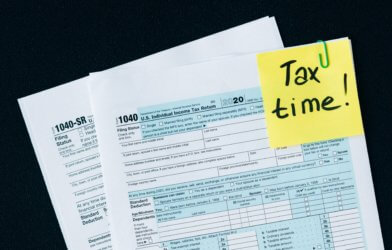WASHINGTON — There’s no question that 2023 has been rough on Americans’ wallets. According to a new report, 6.8 million Americans have at least one credit account where they are either behind on payments or have been granted a deferment. That survey also highlights which areas of the U.S. people are feeling these financial struggles the most.
WalletHub researchers note that the past few years have been financially challenging for Americans nationwide due to factors like inflation, fluctuating unemployment rates, the pandemic, and natural disasters, all contributing to difficulties in paying bills. However, the impact varies widely across the country. WalletHub’s report, based on data from the personal finance website, identifies Louisiana as the most financially distressed state, followed by Mississippi, Texas, Tennessee, and Nevada.
To determine these rankings, WalletHub compared the 50 states and the District of Columbia using nine key metrics. These include average credit scores, changes in bankruptcy filings over the past year, and the proportion of people with accounts in distress. WalletHub defines an account “in distress” as one that is either in forbearance or has payments deferred, indicating the account holder is temporarily exempt from making payments due to financial hardship.
On the opposite end of the financial spectrum, Americans in New Hampshire have done the best job of weathering a rough economic year. Massachusetts, Maine, Rhode Island, and New Jersey round out the bottom five states with the fewest number of residents in financial distress.
“Financial distress can be a vicious cycle. People who can’t make payments on their accounts end up damaging their credit scores, which in turn makes it more difficult for them to qualify for the best solutions to their debt. If you are in financial distress, some of the best options to pursue are debt settlement, debt management and free credit counseling. If your credit score hasn’t been damaged too much yet, you may be able to save a lot of money through Debt consolidation,” says WalletHub analyst Cassandra Happe in a statement to StudyFinds.

WalletHub’s 6 Tips for Getting Out of Financial Distress:
- Consider Hardship Programs: If you believe your financial struggles are just a temporary problem, you can ask creditors about their “hardship programs.” These programs allow people to temporarily defer or lower monthly payments until they get back on their feet.
- Try Debt Management: Debt management allows you to negotiate better terms with your credit card issuer. This can include lower monthly payments or a permanently lower interest rate. Creditors want to their payments on time, so if you’re willing to pay what you owe and just need a bit of help, you may be successful. WalletHub recommends avoiding sending payments to a debt management company. Instead, set up a plan directly with the lender.
- Avoid Easy Ways Out: There are plenty of offers out there for various types of debt solutions, and it can be difficult to determine what’s legitimate and what’s not. WalletHub says a good rule of thumb is that if it seems too good to be true, it probably is. For example, debt settlement companies may promise to get you off the hook for pennies on the dollar, but they’ll also require you to default first and hurt your credit score even more. They also tend to charge expensive fees as well.
- Consolidate Your Debt: A debt consolidation loan can put all your debts in one place with a lower interest rate. Another option is a balance transfer credit card. In both cases, though, you’ll typically need good or excellent credit to qualify for any decent options. It’s possible to get a debt consolidation loan with bad credit scores, but you won’t necessarily get a better interest rate than you have on your current debts.
- Avoid Predatory Lenders: It can be tempting to get quick, guaranteed cash from a payday lender or auto title lender. However, you’ll face exorbitant interest rates and fees that hurt your ability to pay back the money.
- Budget Carefully: One way to have more money to pay your debts each month is to be stricter about your spending. Cut out luxury purchases, try to find better deals on essential purchases, and put as much money aside in advance to pay your debts.
States with the Most People in Financial Distress
| Overall Rank* | State | Total Score | Credit Score | People with Accounts in Distress | Average Number of Accounts in Distress | Change in Bankruptcy Filings September 2023 vs. September 2022 | “Debt” Search Interest Index | “Loans” Search Interest Index |
|---|---|---|---|---|---|---|---|---|
| 1 | Louisiana | 50.44 | 7 | 3 | 2 | 9 | 43 | 2 |
| 2 | Mississippi | 48.56 | 49 | 15 | 15 | 7 | 24 | 1 |
| 3 | Texas | 45.25 | 6 | 10 | 8 | 4 | 18 | 8 |
| 4 | Tennessee | 45.06 | 32 | 4 | 3 | 15 | 21 | 8 |
| 5 | Nevada | 43.66 | 23 | 2 | 4 | 11 | 38 | 17 |
| 6 | South Carolina | 42.41 | 39 | 5 | 7 | 22 | 15 | 5 |
| 7 | Alabama | 42.41 | 19 | 9 | 10 | 35 | 16 | 2 |
| 8 | District of Columbia | 42.35 | 50 | 48 | 50 | 1 | 1 | 35 |
| 9 | Georgia | 40.65 | 29 | 7 | 6 | 10 | 41 | 11 |
| 10 | Kentucky | 40.65 | 41 | 8 | 11 | 8 | 21 | 19 |
| 11 | Oklahoma | 40.24 | 27 | 16 | 16 | 19 | 18 | 4 |
| 12 | Arkansas | 39.56 | 47 | 13 | 13 | 16 | 6 | 19 |
| 13 | New York | 39.14 | 21 | 28 | 33 | 3 | 6 | 23 |
| 14 | North Carolina | 37.91 | 46 | 11 | 9 | 12 | 29 | 17 |
| 15 | Missouri | 36.00 | 8 | 17 | 18 | 39 | 6 | 13 |
| 16 | South Dakota | 35.71 | 3 | 37 | 25 | 40 | 2 | 11 |
| 17 | Kansas | 34.78 | 33 | 29 | 17 | 34 | 13 | 6 |
| 18 | Delaware | 34.77 | 12 | 19 | 28 | 25 | 16 | 13 |
| 19 | Idaho | 34.75 | 26 | 46 | 48 | 24 | 3 | 13 |
| 20 | Florida | 34.57 | 14 | 12 | 14 | 42 | 18 | 22 |
| 21 | Illinois | 34.42 | 20 | 14 | 12 | 23 | 43 | 26 |
| 22 | Oregon | 33.78 | 9 | 27 | 27 | 2 | 46 | 37 |
| 23 | Alaska | 33.03 | 5 | 45 | 42 | 20 | 11 | 23 |
| 24 | North Dakota | 32.82 | 9 | 44 | 31 | 27 | 4 | 29 |
| 25 | Maryland | 32.12 | 35 | 25 | 40 | 5 | 24 | 38 |
| 26 | Hawaii | 31.28 | 2 | 6 | 5 | 44 | 49 | 47 |
| 27 | Utah | 31.21 | 1 | 31 | 19 | 36 | 10 | 44 |
| 28 | Indiana | 30.71 | 48 | 18 | 21 | 37 | 13 | 28 |
| 29 | Vermont | 30.08 | 40 | 1 | 1 | 50 | 51 | 51 |
| 30 | California | 29.82 | 11 | 20 | 20 | 21 | 33 | 40 |
| 31 | Michigan | 29.28 | 30 | 21 | 23 | 18 | 41 | 31 |
| 32 | Minnesota | 29.15 | 24 | 26 | 22 | 14 | 33 | 41 |
| 33 | Virginia | 29.02 | 22 | 34 | 37 | 17 | 33 | 31 |
| 34 | Ohio | 28.55 | 44 | 47 | 47 | 29 | 31 | 8 |
| 35 | Washington | 28.08 | 14 | 41 | 39 | 6 | 46 | 47 |
| 36 | Arizona | 27.98 | 28 | 22 | 24 | 43 | 21 | 27 |
| 37 | Colorado | 27.97 | 17 | 39 | 29 | 26 | 27 | 41 |
| 38 | Pennsylvania | 27.65 | 31 | 35 | 32 | 28 | 33 | 31 |
| 39 | Nebraska | 27.52 | 16 | 40 | 43 | 45 | 9 | 35 |
| 40 | West Virginia | 27.37 | 38 | 33 | 44 | 46 | 4 | 29 |
| 41 | Iowa | 26.85 | 51 | 50 | 49 | 13 | 11 | 19 |
| 42 | Wisconsin | 26.05 | 13 | 30 | 30 | 41 | 29 | 34 |
| 43 | Connecticut | 26.01 | 45 | 32 | 36 | 30 | 24 | 44 |
| 44 | Montana | 23.88 | 42 | 42 | 45 | 33 | 31 | 41 |
| 45 | New Mexico | 23.72 | 18 | 24 | 41 | 51 | 38 | 13 |
| 46 | Wyoming | 23.24 | 4 | 43 | 46 | 49 | 50 | 7 |
| 47 | New Jersey | 22.75 | 25 | 36 | 35 | 32 | 48 | 49 |
| 48 | Rhode Island | 22.57 | 34 | 49 | 38 | 48 | 27 | 23 |
| 49 | Maine | 21.75 | 36 | 23 | 26 | 47 | 43 | 38 |
| 50 | Massachusetts | 21.59 | 37 | 38 | 34 | 38 | 38 | 50 |
| 51 | New Hampshire | 20.54 | 43 | 51 | 51 | 31 | 33 | 44 |
Note: *No. 1 = Most Distressed
Survey methodology:
In order to determine the states where people are in the most financial distress, WalletHub compared the 50 states and the District of Columbia across nine key metrics in six overall categories: 1) Credit Score, 2) People with Accounts in Distress, 3) Average Number of Accounts in Distress, 4) Change in Number of Bankruptcy Filings – September 2023 vs. September 2022, 5) “Debt” Search Interest Index and 6) “Loans” Search Interest Index. WalletHub defines an account in distress as one that either is in forbearance or has its payments deferred.
Researchers then determined the weighted average across all metrics to calculate an overall score for each state and used the resulting scores to rank-order the states.




